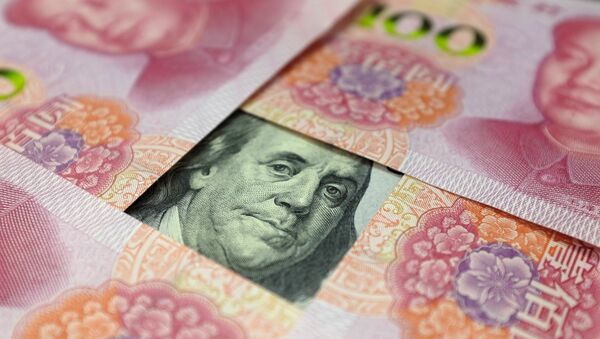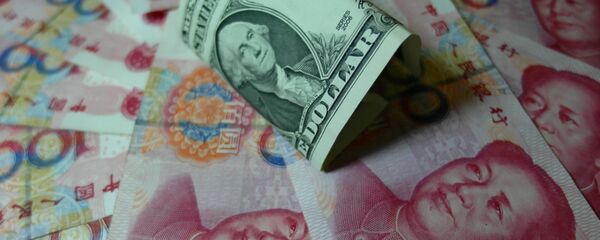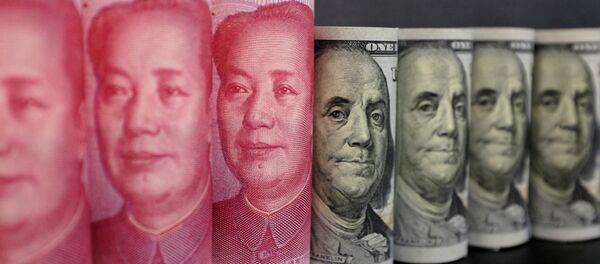President Donald Trump has issued an order to launch an official US investigation of China’s trade practices. He told US trade officials to look into whether Beijing improperly requires foreign companies to hand over technology in exchange for market access.
Sputnik talked to Russian and Chinese experts about the real purpose of this order.
Xu Xiaobo, an expert from the Center of World Economy at China's Institute of Contemporary International Relations told Sputnik that according to the logic of President Trump, the order was no surprise to international observers.
"He is pursuing a new policy and he has to re-analyze the trade; the economic and foreign policies of the US. We call it "Trump's blows", the purpose of which is to gain certain advantages for the US economy. Looking at his approach towards Canada, Mexico and Europe, and towards the Trans Pacific Partnership Agreement; it is evident that the US is pursuing a policy of so-called 'trade protectionism,' Xu Xiaobo told Sputnik.
The main purpose of Trump's order is to defend the interests of the US and Trump's personal interests, he added.
He further elaborated that the US leader should keep to his election promises, stick up to his image and strengthen his internal electoral base. As he is currently facing a number of internal problems, he should toughen his diplomatic measures; the purpose of this is to distract the voters.
Russian trade analyst Alexander Larin also noted that Trump's order was long expected by the international observers after his election promises. This also refers to his promise to increase the import duties. As it turns out, it is not that easy to do, he said. But the US President should keep to his election promises. Chinese, however, will respond quickly and forcefully, he said.
It is not the first attempt to accuse China of stealing intellectual property; however the Americans were unable to gain any tangible success. It is highly unlikely that Trump will be able to do anything here, Larin suggested. Both countries have found themselves on the brink of a trade war, he concluded.




